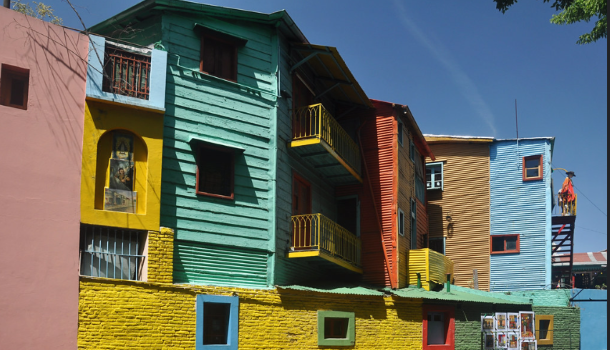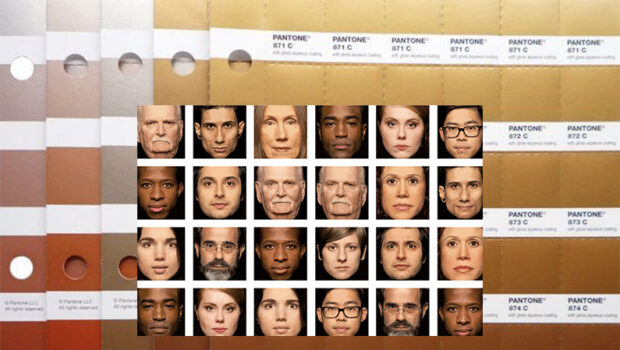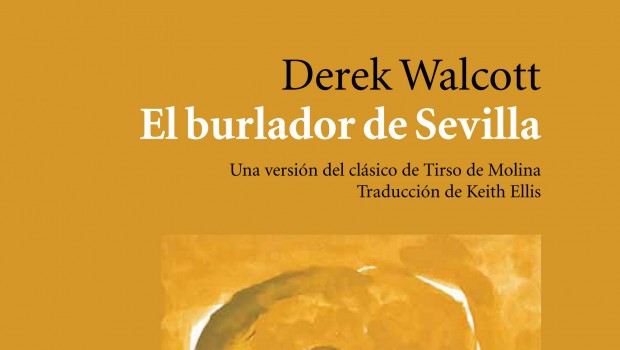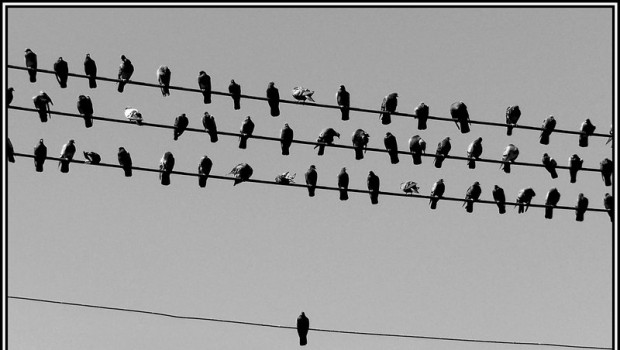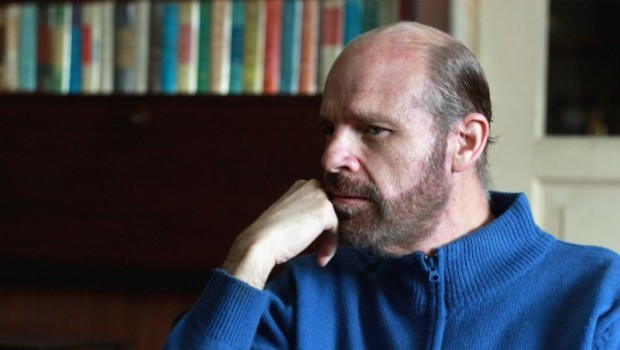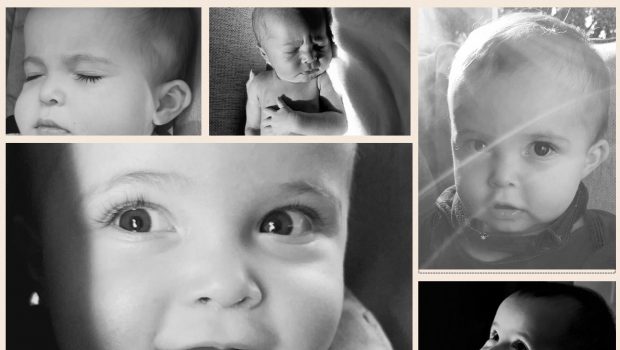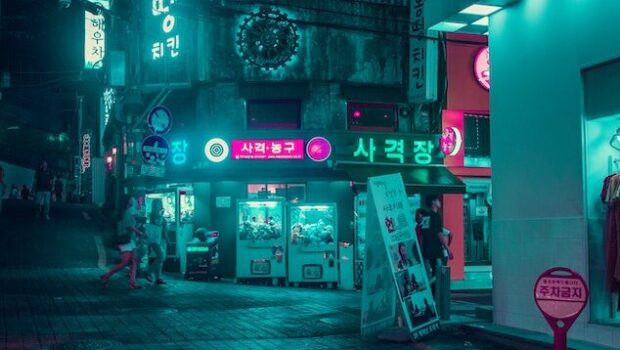The Guest
Corey Sabourin
The night I return to Boca, I’m met at the airport by Niki. “Querido,” she greets me, speaking in Spanish, “our long wait for justice is almost over.” The hug we share convinces me she’s right, that nothing can prevent this.
As we drive toward town I become anxious and ask if we can make a detour to El Refugio.
“What’s there?” she asks.
“The view,” I answer.
In twenty minutes we arrive. “Go have your look,” Niki says. “I don’t like heights.”
This lookout is popular on weekends for barbecues. Tonight there’s nobody. A cold wind blows as I walk along the tall fence that protects visitors from a deadly drop. Thousands of feet below, Boca shimmers like a sinuous swath of light winding up the long valley, an urban Milky Way. A few of those anonymous dots of light are precious to me: they mark a hotel. It’s called the Iguazu, like the waterfall. Hotelier my elderly parents call me in front of their San Diego church friends, all proud smiles. Now it’s me who should be smiling at fate’s uncanny offering. A guest due to arrive tomorrow.
I discovered the run-down hotel with my Colombian partner just over a decade ago. Situated in a scrappy stretch of el centro, the shabby Art Moderne beauty blew me away on first sight. It could have floated up from some European beach town, never mind that Boca is surrounded by the Andes, hundreds of miles from any ocean. The red tile roof suggested the Mediterranean, say Cadaqués, in Spain, while the gray slate façade someplace more northern, like Deauville. We happened upon it one afternoon, having come to Boca for the feria de las flores, a major annual event that combines the traditional—citizens dressed in folkloric outfits carrying large elaborate flower arrangements on their backs—and modern—swanky evening galas. Hotel Iguazu, written in dull brass letters above the entrance, identified the place. A walkway was blocked by a padlocked gate, and in the sad, neglected garden we spotted a sagging for-sale banner strung up between two palm trees. I elbowed my partner. Did you bring your checkbook, I asked, not wholly in jest. His money and connections, and generous spirit above all, are what have made it possible for me, a burned-out screenwriter, to have a second act.
I feel my phone vibrate. My partner has posted a selfie. It’s Halloween and he’s in Miami for work. Every year he dresses up as Madonna, this time as her latest persona, a madame with a red eye patch, long black gloves, riding crop. I want to send a message, tell him I miss him. Only I’m unable to compose even the briefest hello, a clue to my state of apprehension, the thing I’m here to do.
These last twenty-four hours are a blur. It was only yesterday that a software issue with the hotel reservation system drew my attention to the guest scheduled to check in at the Iguazu on Sunday, which is tomorrow.
Cabral. My bowels seized. Could it be him?
I was in Panama City, where I have a new hotel project going. I left a voicemail for Niki, who called right back. “Opportunity knocks,” she said. “We answer.” I booked a flight for the next day, leaving my project manager in charge, telling her I might be unavailable for a few days.
“Is everything okay?” she asked, graciously.
“It’s a family matter,” I said.
Niki flashes her headlights. I raise an arm to acknowledge her impatience. She has a dinner to go to and will be late on account of picking me up, she let me know. I jog back to the car. I’m not a young man, but in excellent shape. Niki reaches into the back seat for a plastic jack-o’-lantern filled with candy. I tell her no thanks before she offers.
“Just don’t worry, okay?”
I want to heed her advice, plus reassure her, even joke. “Don’t worry? But it’s Halloween and I don’t have a costume.”
Neither of us laughs. On the ride down I wonder what would be a fitting costume for meeting Cabral. A nun’s outfit?
It’s nine o’clock when Niki drops me at the hotel. “We can meet later if you like,” she says.
“Enjoy dinner,” I say, trying to sound fine.
“Get some rest.”
Still holding the car door open I lean in.
“I’ve always been curious.”
“What is it?”
“What’s your real name?”
“My real name?”
“Niki, that’s a nickname.”
It’s the case all over Latin America. Catholics, or anybody nominally traditional, typically name their offspring after a mother, father, or other relative. Nicknames proliferate as a result.
“Virginia. Same as my mom.”
Part of me wants to reach in and squeeze her arm, instead I say good night. She drives off. Neither Niki nor I believe it mere coincidence that she found her way to the Iguazu in search of work five years ago. She grew up in El Salvador not far from the Maryknoll mission where Christy, my sister, was serving as a lay assistant. The land is beautiful, Niki told me the day I interviewed her for the porter’s job. She described the fertile highlands and the successful years of her family’s coffee farm—“till everything changed.” Months passed before I told her about Christy; I only had to mention the name of the mission and her expression darkened. The massacre carried out there by Cabral’s thugs was infamous. Niki’s parents, accused of helping the guerrillas, were more of his victims.
Inside the hotel, Tito, the current porter since Niki got a better position elsewhere, steps forward with his boyish, eager smile. I almost embrace him, I feel so emotional.
“Will you be taking a vuelta with Bruno, señor?”
A walk with my beloved dog could clear my head a bit, so I say yes, please bring him down. He grabs my bag and bounds toward the elevator like a puppy himself.
Inés, alone behind the receptionist desk, is on the phone. All I can see of her is a bun of graying hair. I rub my tired eyes and look around. The décor and design touches of the lobby don’t give me the usual lift. How alien I feel here tonight. Part of me feels like I’m floating. Being carried downstream on the actual Iguazu River, perilously headed for those plunging cascades. Christy, my only sibling, was five years older, yet because we both studied dance, classical ballet, we were very close. We attended the same dance school during the academic year and devoted much of our summers to intensive study. She was my compass. So when she quit after a semester at Julliard and turned to missionary work, I quit, too, even though I’d been accepted into a trainee program at San Francisco Ballet. I was 17 when Christy was killed. Time stopped. Life no longer made sense. It took me years to come out of that tunnel.
I step through a tiled archway into the lounge. Morning coffee service is set up here, but at this hour it’s usually deserted. I stop to admire the exuberant flower arrangement on an ebony table. Flowers are a passion in Boca, not just during the feria; the year-round springtime climate encourages green thumbs. Window boxes, sidewalk planters, balcony pots, no self-respecting bocaño fails to cultivate at least a few blooming plants. It’s also a local industry. Commercial nurseries on the city’s outskirts supply the U.S. with everything from supermarket carnations to fancier exotics. In the soft glow cast by a pair of torchieres, the centerpiece’s silhouette appears silvery and sharp edged, like a collection of medieval sabres. I reach out to touch a favorite violet-blue orchid when a voice startles me.
“Cattleya warscewiczii.”
I turn in surprise. Even in Boca the rare orchid isn’t well known. An older man sits cross-legged in a far corner. Is he a guest? This neighborhood is home to not a few gritty bars, clubs, and boarding houses, so it’s not unusual to on occasion encounter loiterers making themselves comfortable in the leather club chairs. This man’s attire reassures me. In those natty tweeds and woolens he could pass as a member of the House of Lords.
“A fine example of Cattleya warscewiczii,” he continues, “though I prefer sepals with a contrasting pink. I cultivate them in Florida. Or did. The last hurricane greatly damaged my greenhouse. A terrible loss.” His English is near perfect. No doubt he’s some sort of businessman. “Arrived an hour ago,” he adds.
I welcome him and wish him a pleasant stay.
“I see, not a guest yourself then?”
“The owner.”
“Congratulations. It’s a real jewel.”
My pride swells. Bringing the Iguazu back from the brink was no easy feat. My partner secured financial incentives given the historical nature of the property, and I dedicated three long years to its restoration. I doubt it will ever make money, but it is regularly singled out in the travel media—Old World charm meets Latin American contemporary. Last year we created an owners’ apartment on the top floor.
“Are you—” I begin.
Something startles me. I swing around. It’s Bruno, his nose sniffing the back of my leg. Tito and I share a laugh over this, and I squat to receive Bruno’s rambunctious welcome-back kisses. He’s a beagle. After some belly rubs and head stroking I take the leash and rise. Turning to wish the guest a good night, I’m saved the effort. He’s disappeared.
Out on the streets Bruno and I join the Halloween revelers. The U.S. holiday has become increasingly popular here, particularly with young people happy to have an excuse to dress up and get a bit wild on the eve of somber All Saints Day.
A flamenco dancer and matador speed by on a loud motorbike. “Treeky-treeky!” they call out.
I check my phone. No new posts from my partner-slash-Madonna. He knows absolutely nothing about my pact with Niki. If he found out I think he would hire someone to do the job. Not think, he would. His family background is rife with stories of kidnappings, reprisals. Christy’s story wasn’t unfathomable to him, just as his occasional screams during the night are familiar to me. I turn into a small neat plaza several blocks from the hotel.
“Buenas noches” I hear.
It’s the businessman and orchid lover. He’s sitting outside a café bar I know well. It has a gay following, though the clientele is mixed enough not to put off a traveler who might happen upon it. Tonight, despite Halloween, the crowd is light. I heel Bruno with a tug of his leash.
“You found a good spot.”
“Is that so?”
Bruno emits a low growl, and I reflexively run a hand over his face and ears.
The man proceeds to make a series of silly faces for Bruno, calling him a chucho bonito. Chucho—I’ve heard the term before. We discuss dogs for a few minutes and then when I’m about to move on he gestures to an empty chair and invites me to join him for a nightcap.
A drink might take the edge off. I accept and tie Bruno to a tree, offering reassurances that I’m close by, in plain sight.
A waiter in an electric blue page boy wig takes my drink order.
The guest, meanwhile, lights a cigarillo. He doesn’t offer me one or ask if I mind, though I’m not in the least offended. For a second I wonder if he chose this bar deliberately. If he might be gay.
“What brings you to Boca?”
With a coy expression, he raises his hands and makes little plucking movements with his fingers.
“You’re a harpist?”
He chuckles and wags his head. Next he pantomimes filling a vase with flowers, his hands lifting each stem to his nose for a pleasing sniff.
“Flowers.”
He touches a finger to his bulbous nose: “The famous flores de Boca. I’ve come to visit the nurseries.”
My Campari and soda arrives. After a sip I wish I’d ordered something stronger. I wouldn’t mind getting drunk, even staying drunk till tomorrow for when Niki and I roll out the alfombra roja for Cabral, “red carpet” narco speak for a very different sort of welcome.
“I’m on a quick visit myself,” I say. “I’m developing another hotel, in Panama, and I’ve returned for a meeting.”
“And your chucho? Doesn’t he miss his owner?”
This time the word registers. Niki has used it to refer to Bruno. I stiffen. Is this hotel guest Salvadoran?
I try not to show alarm. “Ha. He has more fun without me. The staff pamper him.”
Bruno, as if on cue, barks at a costumed superhero. I hush him. Cabral calls to the waiter to ask for a bowl of water. I use the interruption to text Inés for any update on a reservation for a Señor Cabral. The waiter appears and sets down a metal bowl. Bruno gives me a quizzical look before lowering his head and lapping away.
“See?” the guest says. “He was just thirsty.”
Inés replies. Mr. Cabral checked in a couple of hours ago, one day early.
Unable to look my sister’s killer in the face, I watch his nicotine-stained fingers tap the cigarillo on the lip of the ashtray. A numb heaviness descends. I’m transported back to the days after Christy’s death, a funeral mass held for her in the local church where the crowd swelled to standing room. At one point during the service a rumor circulated that the man responsible for the massacre was present in the crowd. I only managed to calm down, and avoid shitting myself, by planning how I’d escape if he came after me, where I’d run.
Cabral empties his glass. “Another round?”
You’re not running now, I think. You have a pledge with Niki.
“Sure I will. That is, if it’s all right that I first handle some business that’s rather urgent.” I tell him it won’t take long, that I’d like to continue our chat. “I have some contacts, at nurseries, you may not have.”
When I move to untie Bruno, Cabral orders me to leave him.
I hesitate.
“I’ll be his guard dog till you return.”
Is there any risk in his proposition, I wonder. Actually, it all but guarantees he’ll wait, even if something should delay me.
“No treats,” I quip, amazed by my coolness.
As soon as I’m out of earshot I call Niki. I explain everything. She says she’ll leave immediately.
“Wear something,” she says. “A disguise.”
“I don’t have one.”
“It’s Halloween. Anything will do.”
As I run toward the hotel I remember a costume. Something my partner wore to a kids’ party one weekend when I was away. I pulled the bag out of the closet not long ago, wondering what was in it. A silly sheep costume.
Arriving out of breath I use the hotel side entrance to avoid anyone. The elevator takes me to our apartment. I find the bag and dump the costume onto the bed. A woolly fleece sewn onto a body suit. A latex mask with a nose and floppy felt ears. Ridiculous. Still, I change into running shorts and a T-shirt and then hastily throw on the costume.
In the mirror I see a macabre sight: a sacrificial lamb. The term was uttered by an ex-boyfriend once to coldly express his ambivalence over my sister’s killing, the death of an American by an army trained by the U.S. and armed by the U.S.
Finally, no time to lose, I retrieve the handgun from the safe.
Downstairs on the street Niki is waiting on a motorbike, the favored vehicle for drive-by assassins. She wears a Zorro mask.
“You look good,” she tells me as if I’m her date.
“I’m nervous.”
“Don’t be. He’s lived many more years than he ever expected. Shall we?”
She brings out a coin. This, we had decided, was how we’d determine who got the honors. Maybe middle age had led me to believe this moment would never happen. I feel shame that I don’t want to win the coin toss.
My eyes must’ve betrayed me when I do because Niki asks if it’s okay.
I climb onto the motorbike. “It’s okay.”
We drive to the café bar. “There, in the tweed jacket,” I tell Niki. The other outdoor tables have emptied. Bruno, thank God, is fine, just as I left him.
As we ride past, Niki hollers “Treeky-treeky!” without looking at her parents’ killer. Around the corner we pull over and she hops off.
She squeezes my shoulder. “Suerte, hermano.”
I slide forward, taking the handlebars. “Good luck,” I repeat back, a wave of emotion rising inside me, justice for Christy, and dozens more, at hand.
I wait one minute, enough time for Niki to enter the bar, warn the staff, grab Bruno, and retreat.
As I come in sight of the café there’s shouting. I spot Niki untying Bruno. I see Cabral, on his feet, reaching inside his jacket. I’m about five yards away. I aim and fire twice.
He jerks back and starts to topple.
Cattleya warscewiczii rings out in a baleful lament.
I fire again.
-Image by Céline Harrand
Posted: January 2, 2023 at 11:33 am


